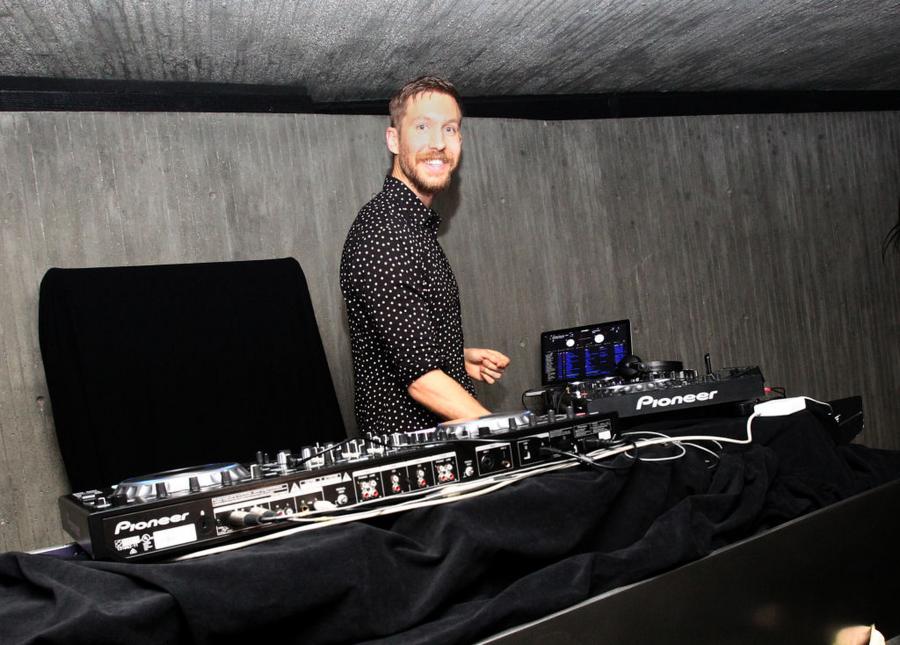Superstar DJ and producer Calvin Harris has long been one of the highest-paid figures in the music industry. For more than a decade, he has consistently ranked among the world's top-earning DJs, often pulling in $40 million or more per year from live performances, production fees, and royalties. Though his royalty income dropped after he sold his publishing catalog to Vine Alternative Investments for $100 million in October 2020, Harris's fortune has continued to grow thanks to touring and brand partnerships.
By CelebrityNetWorth's estimation, Calvin Harris has a net worth of $250 million, making him the richest DJ in the world by a comfortable $50 million margin. Suffice it to say, Harris is very, very rich. And that makes the details of his latest legal fight all the more surprising.
In a newly filed arbitration demand, Harris — whose real name is Adam Wiles — has accused his longtime financial adviser, Thomas St. John, of misusing $22.5 million of his money on what his attorneys describe as a "boondoggle" real estate project in Hollywood. The Scottish DJ claims the funds were funneled into an ill-fated development called CMNTY Culture Campus, leaving him in the dark about where the money went and whether he will ever see a return. On the bright side, at least Harris has the kind of fortune that can absorb such a staggering financial loss.

Tommaso Boddi/Getty Images
The Investment and Allegations
According to court filings, Calvin Harris trusted financial adviser Thomas St. John with his money for more than a decade. St. John first presented Harris with documents related to CMNTY Culture Campus, a 460,000-square-foot Hollywood project pitched as a creative hub for musicians, producers, and entertainers. The development was to include recording studios, office space, lounges, and retail areas, and it was marketed as a bold new center for the creative community.
Harris's attorneys allege that when the project began to run low on cash in 2023, St. John pressured the DJ to provide emergency funding. Through a vehicle called Lewis LLC, Harris ended up making a $10 million loan and a $12.5 million equity investment in Hollywood LLC, the entity behind the project. His lawyers claim Harris was given almost no information about where his money was going, aside from DocuSign forms with limited context. They argue the paperwork was "materially misleading" and that the investment was secured through misrepresentation.
Not long after Harris's money was committed, attorneys allege that $11.7 million was transferred to an entity called Dun & Dun LLC, which St. John controls. They further claim that Harris has not received a single repayment or distribution from the deal and that the project has failed to break ground. His legal team described the investment as "at best, a complete boondoggle, and, at worst, a complete fraud."
The Project's Pivot
By 2024, CMNTY Culture Campus had already shifted away from its original vision. Developers announced that, due to shifting market conditions, the project would no longer be built as a creative hub. Instead, the site at Sunset Boulevard and Highland Avenue would become a high-rise residential development featuring 750 apartments split across two towers, with 90 units reserved for low-income housing. The revised plan also included outdoor spaces, retail areas, and creative zones, marketed as a "one-of-a-kind" residential complex in the heart of Hollywood.
St. John's attorney, Sasha Frid, defended the pivot, arguing that real estate projects across the country have been slowed or reshaped due to rising interest rates and construction costs. He further claimed the Hollywood development remains viable, projecting a completed valuation of more than $900 million. In statements to the press, Frid insisted Harris was not misled but rather "actively pursued this development opportunity" alongside other investors.
Harris, however, maintains that the pivot only underscores how little information he was given at the outset. His attorneys say he was left with scant details, sometimes contradictory updates, and no clear accounting of how his $22.5 million was being used. With the $10 million loan due to be repaid by January 31, 2025 — and no repayment made — Harris contends the financial health of the project is deteriorating and that he has been unfairly strung along.
Legal Fight and What's Next
In September 2025, Harris's attorneys filed a petition in Los Angeles Superior Court to enforce protections secured through arbitration. The agreement prevents the project's funds from being dissipated while the dispute plays out, reflecting the DJ's concern that his investment could vanish entirely. His lawyers argue that the $10 million loan, plus interest, should have been repaid months ago, but that the principal remains outstanding and no distributions have been made on the equity side.
For his part, Thomas St. John has denied any wrongdoing. His attorney has repeatedly emphasized that Harris was one of several investors and that the project, while delayed, is still moving forward. They point to rising interest rates and other economic headwinds as reasons for the slower-than-expected progress, while maintaining the towers could ultimately be worth nearly $1 billion once complete.
Regardless of how the case is resolved, the dispute highlights the risks entertainers face when mixing music money with speculative real estate investments. Harris may have the wealth to withstand a $22.5 million setback, but for most people, a loss of that scale would be career-ending. With arbitration underway and a court petition on file, the world's richest DJ is now fighting to recover millions he says never should have left his accounts in the first place.
/2010/12/Calvin-Harris.jpg)
/2022/12/calvin-harris.jpg)
/2022/02/GettyImages-488812227.jpg)
/2025/11/selena-family-thumb.png)
/2025/04/Mike-Lindell.jpg)
/2025/10/dreka-gates.jpg)
/2020/06/taylor.png)
/2020/04/Megan-Fox.jpg)
/2017/02/GettyImages-528215436.jpg)
/2009/11/George-Clooney.jpg)
/2019/04/rr.jpg)
/2009/09/Jennifer-Aniston.jpg)
/2020/01/lopez3.jpg)
/2018/03/GettyImages-821622848.jpg)
/2019/10/denzel-washington-1.jpg)
/2019/11/GettyImages-1094653148.jpg)
/2020/02/Angelina-Jolie.png)
:strip_exif()/2015/09/GettyImages-476575299.jpg)
:strip_exif()/2009/09/P-Diddy.jpg)
/2009/09/Cristiano-Ronaldo.jpg)
/2009/09/Brad-Pitt.jpg)